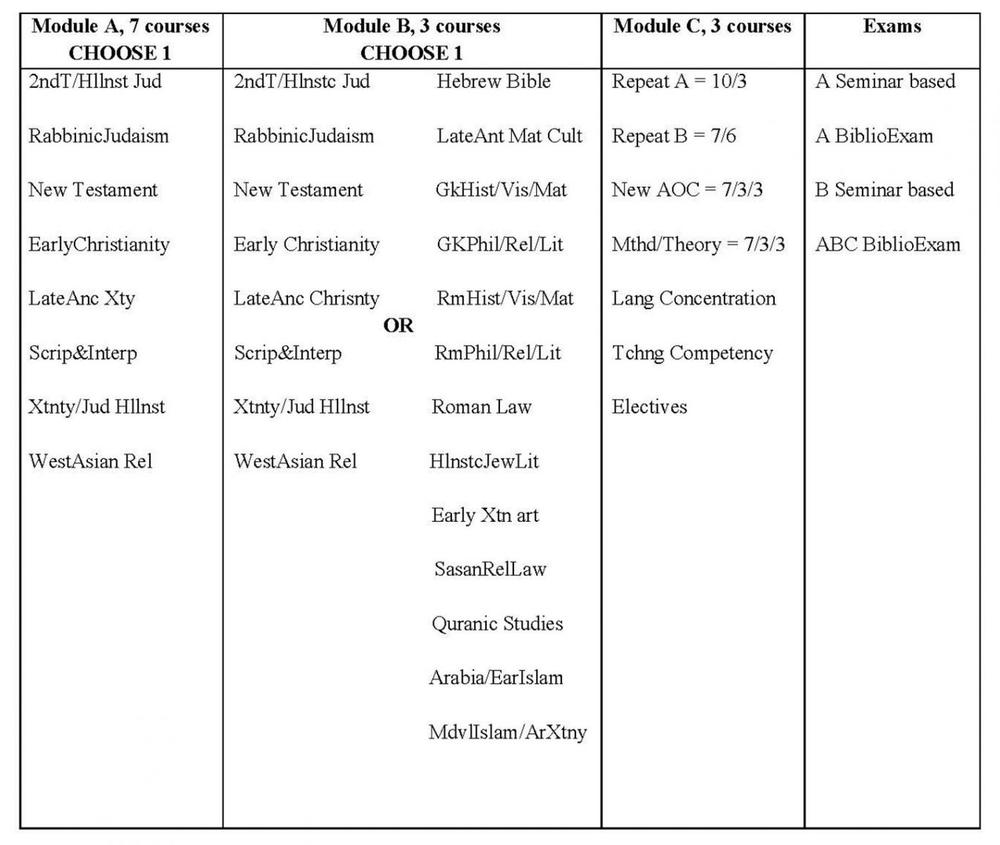To foster both strong disciplinary focus and a facility with interdisciplinary and cross-disciplinary research, students choose one primary area of concentration (Module A, seven courses) and one secondary area of concentration in a different religious tradition (Module B, three courses). A further three courses (Module C) are electives. Students may wish to use Module C:
- to develop greater depth in one of the student’s existing areas of concentration, whether primary or secondary;
- to develop greater breadth through the addition of another area of secondary concentration;
- to develop expertise in a methodological approach, cultural area, historical period, or body of literature contributing to the dissertation project. These courses may be drawn from other departments and programs such as Classics; WGSS; Anthropology; Art History, etc.;
- to develop teaching competencies outside of the student’s areas of concentration, (e.g., medieval Scriptural interpretation; modern Jewish thought; non-western Christianity).
- to acquire additional languages (see Language Concentration Track below).
Areas of Primary OR Secondary Concentration (Module A or B)
- Second Temple and Hellenistic Judaism
- Rabbinic Judaism
- New Testament
- Early Christianity (to 4th c CE)
- Christianity in Late Antiquity (post-4th c CE)
- Scriptures and their Interpretation in Antiquity
- Christianity and Judaism in the Hellenistic East
- West Asian Religions of the Sasanian and early Islamic era
Areas of Secondary Concentration only (Module B only)
- Hebrew Bible (for Primary Concentration see the Hebrew Bible subfield)
- Late antique material culture
- Greek and/or Roman Philosophy, Religion, and/or Literature
- Greek and/or Roman History, archaeology, visual and/or material culture
- Roman Law
- Hellenistic Jewish Literature
- Early Christian and Jewish art and material culture
- Sasanian Religion and Law
- Quranic Studies
- Pre-Islamic Arabia and Early Islam
- Early Medieval Islam and Arabic Christianity
The ADGS or DGS will consider proposals for customized areas of concentration developed by students in consultation with relevant faculty. Students must provide an intellectual rationale for the proposed area of concentration as well as a plan for coursework.

